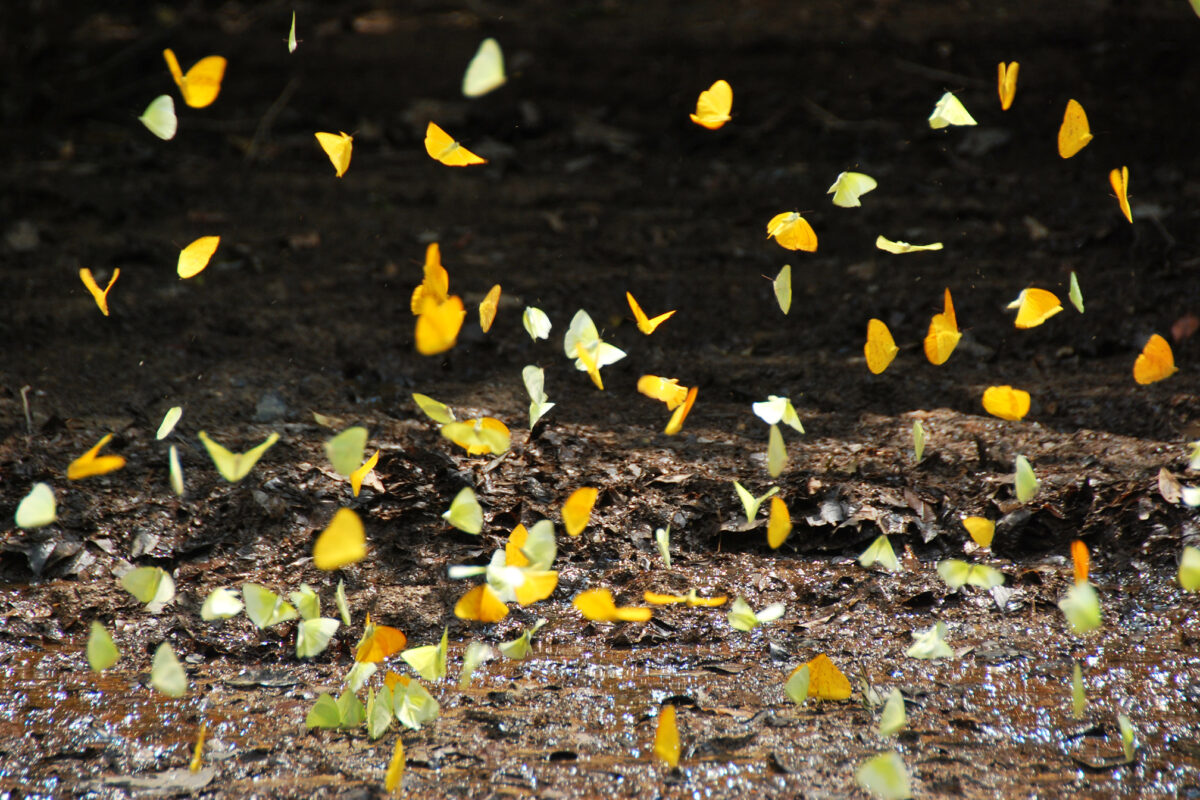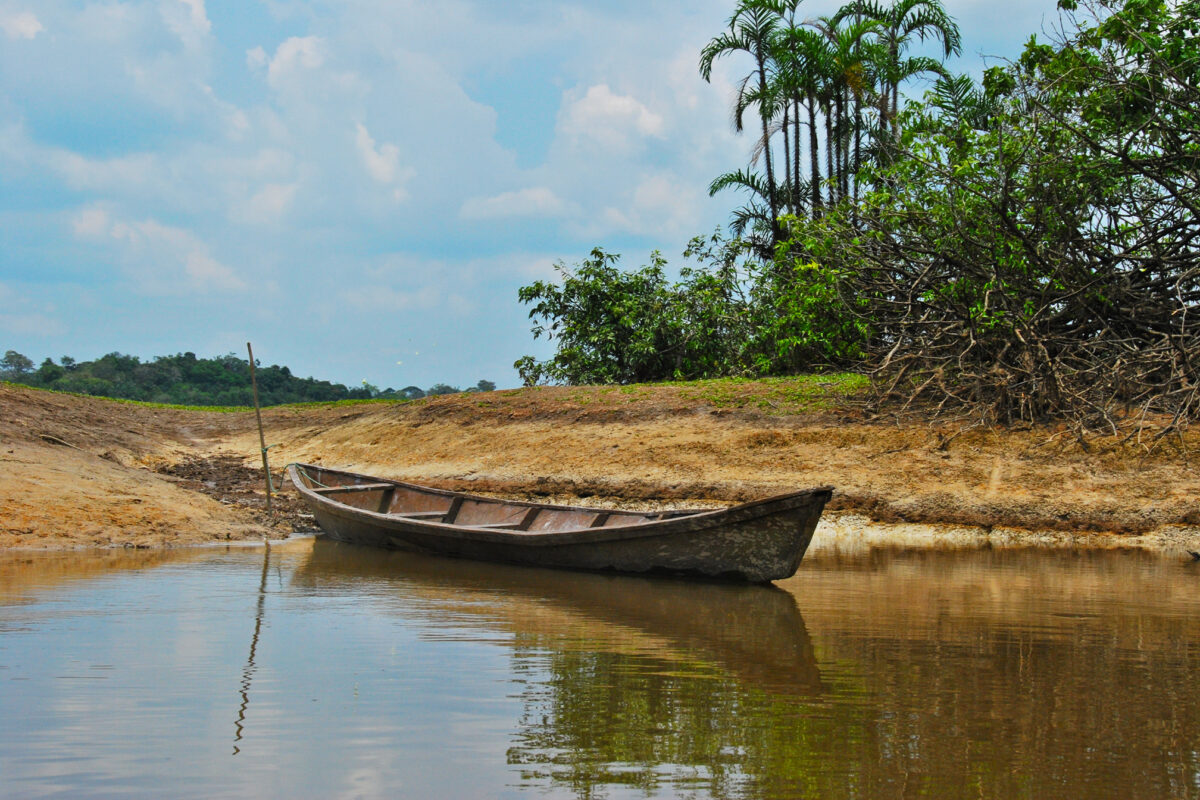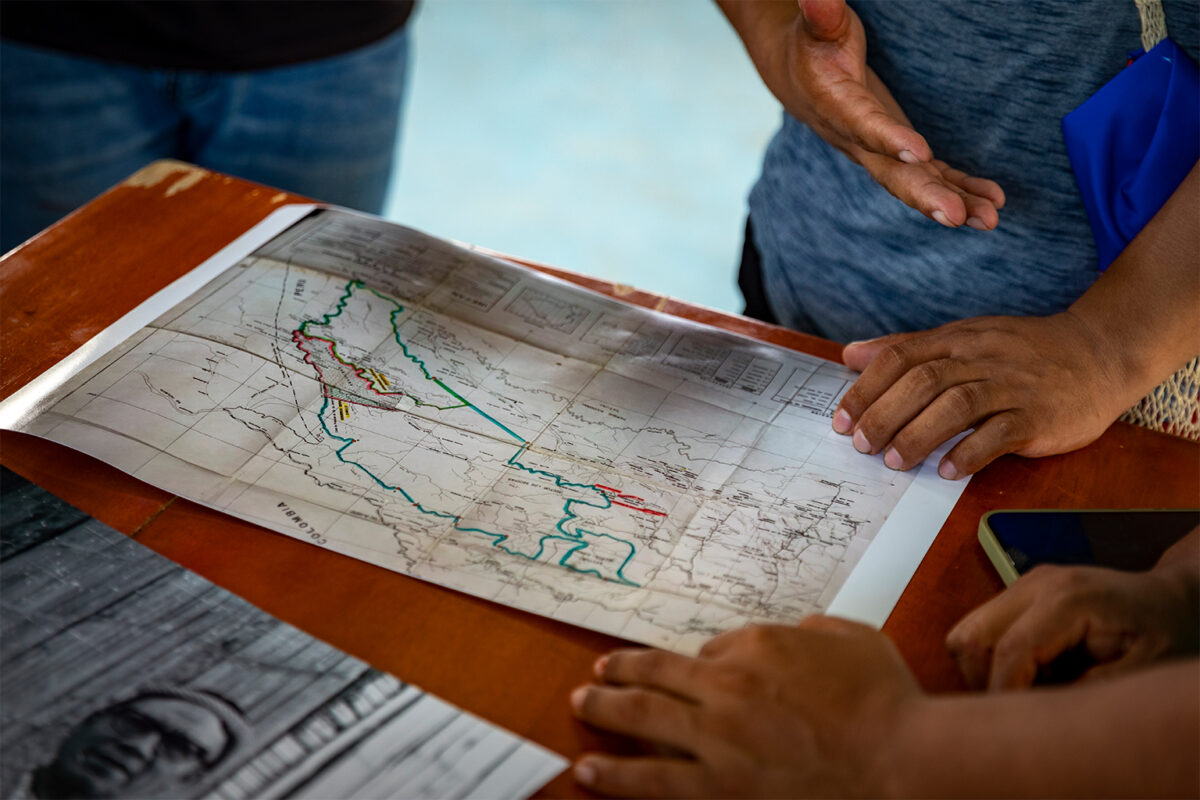DIMONIKA BIOSPHERE RESERVE, Republic of Congo — Gold mining by the Chinese company City SARL inside the Dimonika Biosphere Reserve in the Republic of Congo has devastated 5 hectares (12 acres) of forest. Artisanal gold miners and some local community members have had to leave the area, depriving them of food and drinking water. Water samples taken in the area and analyzed in a laboratory revealed dangerously high levels of mercury, which threaten the health of the inhabitants. NGOs have denounced what they call an ecological and human disaster. The Congolese government banned the activities of the Chinese mining company in November 2024, but the damage done has never been remediated.
Mongabay’s Video Team wants to cover questions and topics that matter to you. Are there any inspiring people, urgent issues, or local stories that you’d like us to cover? We want to hear from you. Be a part of our reporting process—get in touch with us here!
Banner image: Gold mine in the Dimonika Biosphere Reserve, Republic of Congo. Image ©Berdy Pambou.
Transcript
Notice: Transcripts are machine and human generated and lightly edited for accuracy. They may contain errors.These gaping holes
in the heart of the Dimonika
Biosphere Reserve
are thought to be the result
of gold mining.
Take a look at this vast expanse,
I remind you that we’re in a state reserve,
and see for yourself, there’s no forest left.
Located in the Republic of Congo,
50 km from the Atlantic coast,
the Dimonika Biosphere Reserve
covers 136,000 hectares of forest.
Recognized as a UNESCO World
Heritage Site in 1988,
this protected area serves
as a living laboratory:
for biodiversity conservation,
scientific research
and sustainable management
of natural resources.
But since the arrival of the
Chinese company City SARL
at the end of 2023,
this protected area could
well be in danger.
According to local media,
these backhoe loaders
have already destroyed
5 hectares of forest,
the equivalent of seven soccer pitches.
Some local gold miners were offered
financial compensation by the company
to leave the site.
These three men refused.
They had come with a policy of giving people
a small sum [equivalent to $70]
to free up the places
so that they themselves could come and work.
But if we could stay here,
we would work for decades.
Without land,
this local community
of around 3,000 people is also deprived
of drinking water.
is also deprived
of drinking water.
The Yanika River, which used to run
through the area, is now almost dry.
We used to have water sources,
very good water sources.
Today it’s all yellow,
you’re even afraid to wash your hands in it.
At the end of 2024,
in response to the concerns
of local communities,
the NGO Congo Nature Conservation
took water samples.
Their lab analysis showed
an abnormally high
mercury content.
So the normal level is 0.00005 mg/l,
but we’re at 0.007 mg/l,
which is well above
the permitted level
in freshwater.
That’s over 140 times
more than the norm.
The mercury will rest in the lungs,
in the liver,
and secondly,
it can cause damage
to the people who consume these waters.
So it’s time to point out
and stop the anarchic exploitation
of gold in this Dimonika reserve.
In Brazzaville,
our teams met one of the managers
of the Chinese company in question,
who denied being responsible
for the damage.
The damage was already visible
before we arrived.
It’s like a tenant arriving:
if there was no inventory done
before the tenant occupied the house,
and if an inventory is done
only after the tenant is already housed,
we find ourselves carrying
everything that came before us.
The previous tenants in this analogy
would be artisanal miners
of Mvouti district
who have prospected for gold here
for decades with the authorization
of local authorities.
Some have refused to leave the site
in the face of the mining company,
and continue to work the land
with more rudimentary tools.
What we do in a year,
the Chinese machines do in a week.
With artisanal gold panning,
we can’t cut down 10 or 15 trees.
With their machines, they raze everything to the ground.
So how are we going
to feed our families?
And our children, how will they survive?
Faced with the scale of the disaster,
the minister of the environment,
Arlette Soudan-Nonault,
ordered a ban on the company’s activities
in November 2024.
But in the meantime,
biodiversity has been
severely damaged,
water is unfit for consumption,
and some inhabitants
have been forced to flee.

















